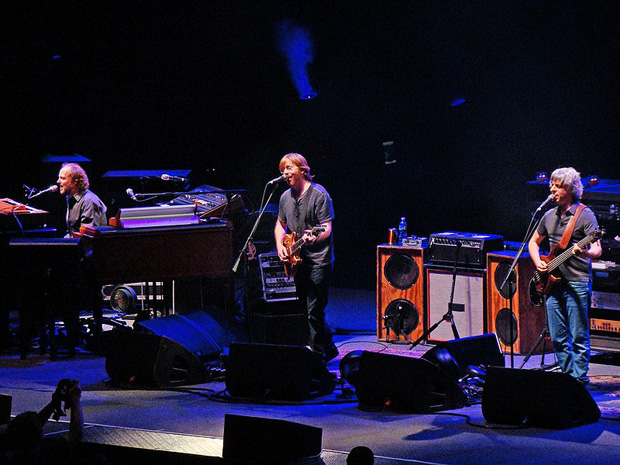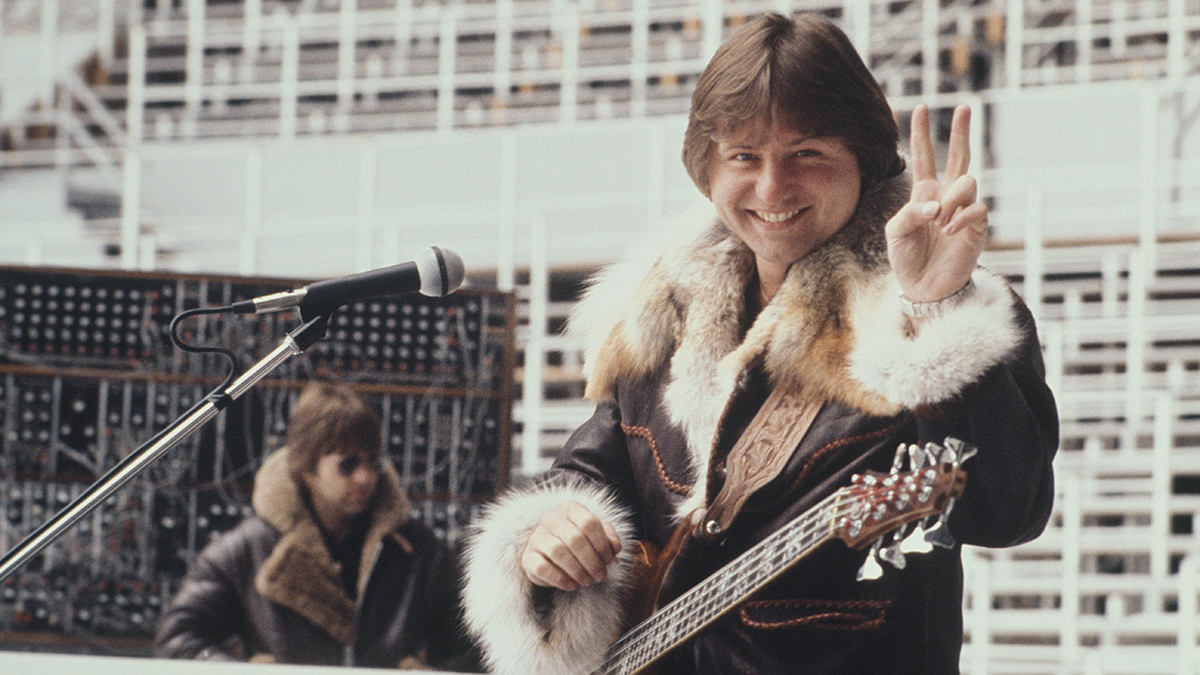Biography: Phish

Phish was formed on the campus of the University of Vermont in Burlington in 1983.
Ernesto Giuseppie “Trey” Anastasio III started playing guitar with Jeff Holdsworth. Later that year, Trey met Jon Fishman, whose drumming he had heard bellowing through the dorms, and the three began practicing together.
Later Mike Gordon answered a flyer looking for a bassist and began playing with Trey, Jeff, Fishman and another drummer, Marc “Daubs” Daubert. Their first gig together went poorly; they were wrongly billed as Blackwood Convention for an ROTC Dance in 1983 on the UVM campus. They played two songs before being replaced by Michael Jackson’s Thriller album on the stereo.
By the end of 1984, they had improved and got their first bar gig at Nectar’s, the owner of which, Nectar Rorris, is immortalized in the name and cover art of the album Picture of Nectar. In 1985 they met keyboardist Paige McConnell, who was attending nearby Goddard College. Over the next year Daubs would move and Jeff would drop out of the band and so the modern Phish was born.
Their first studio album, The White Tape, was compiled by Trey, Mike, Jon, Jeff, Marc Daubert, Tom Marshall and Page between 1984 and 1985 and made into a demo. The four modern-day Phish members are on the tracks “Alumni Blues” and “Dog Gone Dog” as well as concert favorites “AC/DC Bag” and “Slave to the Traffic Light."
A good handful of the group’s songs are based on Trey’s senior study that resulted in the essay “The Man Who Stepped into Yesterday,” a fantasy story about a land called Gamehenge. Sometimes the band will play while some of the stories are told by Trey. By 1990, they began to create a buzz with their live shows and in 1991 they signed with Elektra Records.
Phish toured heavily from 1990 to 1994 then began annual breaks. In 2004 the band announced it was breaking up and played its “final” show at a weekend-long festival in Coventry, Vermont, that year, only to get back together in 2009. They and are now touring again and producing more studio albums under their own record label, JEMP Records.
All the latest guitar news, interviews, lessons, reviews, deals and more, direct to your inbox!
Phish, by most respects, is a jam band, but to label them is difficult because their song choices range across multiple musical styles. One song might have the rhythm of reggae as in “Ya Mar,” and the next, an acapella version of Lynryd Skynryd’s “Freebird," to experimental with Fishman playing a vacuum to the tune of “Somewhere Over the Rainbow,” followed by “Rocky Top," a bluegrass jam.
Beyond the eclectic variety of their songs is how long they can last, with some jams lasting as long as 20 minutes and songs weaving in and out of each other. They have released fourteen studio albums, but the albums only give a taste of their creative prowess. To actually experience Phish, their live shows are the way to go. The band has props, a wonderful light shows by Chris Kuroda, they get the audience involved and during songs like “Harry Hood," often times a glow stick war breaks out.
That their live shows are wonderfully entertaining and full of energy, it’s no wonder that the Phish following has become similar to that of the Grateful Dead, where many concert goers travel from city to city following the band on all of their tour dates. A traveling circus atmosphere often times means the shows are one big dance party with the band creating a funky vibe to keep everyone loose and having a good time.
